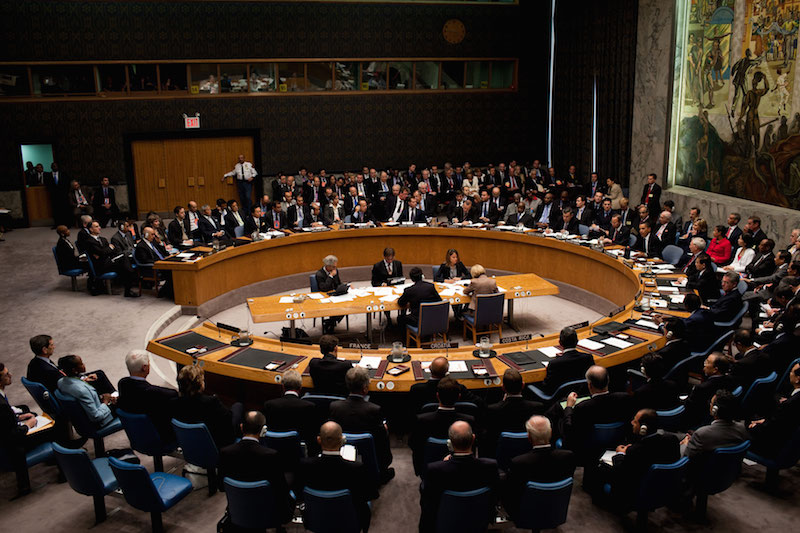
Ethiopia begins two-year term serving on UN Security Council

Tuesday is the first official day of business for 2017 for the United Nations Security Council. And that means it’ll be the first day on the job for five new members: Ethiopia, Bolivia, Kazakhstan, Sweden and Italy.
Ethiopia has had two previous stints on the Council, in 1967 and ’68, and in 1989 and ’90.
Under UN rules, there are 10 non-permanent positions on the Council, each with a two-year term. Every year, five countries leave, making way for five new ones. Africa is allotted three spots in total. Egypt and Senegal are half way through their two years, and will be replaced by two new African nations at the start of 2018.
Ethiopia is seen as a strong regional player on the African continent, helping to promote peace and security.
Recently, it has been helping to mediate the peace process for South Sudan, as well its long-term efforts to find peace in neighboring Somalia.
Ethiopia plays host to the African Union and has also been instrumental in the work of the regional peace and security group, the Inter-governmental Authority on Development or IGAD. It has a lot to offer the Council in terms of experience and knowledge.
With this in mind, it’s likely to push an agenda that prioritizes peace and security, especially across Africa…. as well as focusing on the Sustainable Development Goals, which are important to the continent.
It may also look to voice an opinion on reform of the U-N. Over the years, many countries have questioned whether the Security Council adequately represents the world, more than 70 years after its creation…. And whether an African country can hold a permanent position on the Council, something both South Africa and Nigeria would like to happen.
During its two-year tenure, Ethiopia will of course also have a part to play in trying to find peace in Syria, and discussing measures to help address problems like global terrorism, nuclear non-proliferation and the international refugee crisis.






